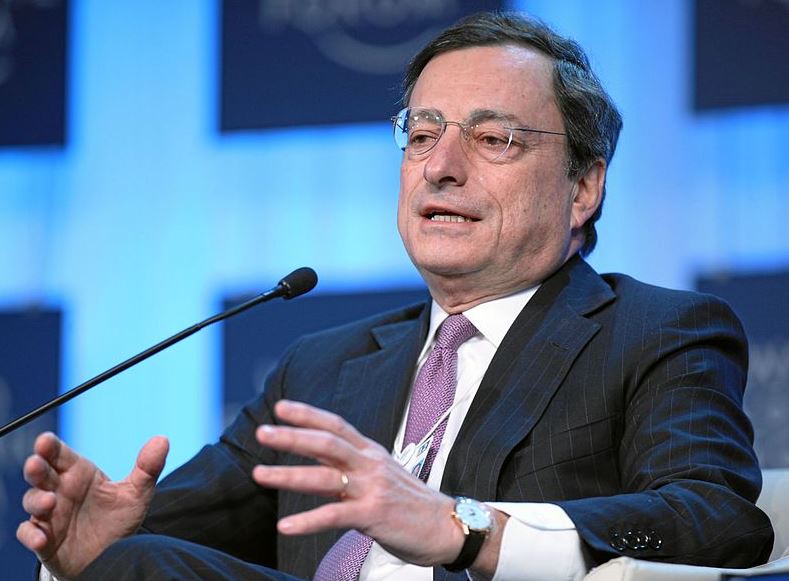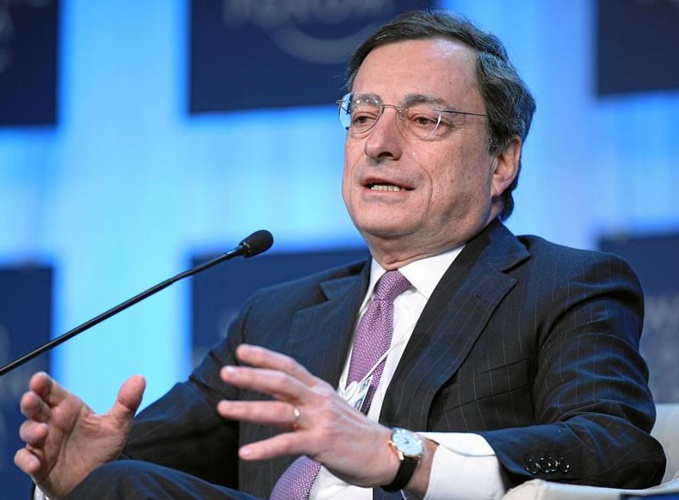After the IMF raised its growth forecasts, and the world elite in Davos highly appreciated the brighter economic outlook, Draghi said that raising interest rates this year is unlikely. This provides a green light for economic growth.
Last year, the euro area economy probably grew at its fastest pace in a decade. GDP data are expected to show that the economy grew for the 19th quarter in a row at the end of 2017.
The 19 countries of the euro zone in January rose to a maximum in June 2006, according to the Purchasing Managers Index (PMI). The data suggest a 1% quarterly growth in the economy, said IHS Markit chief economist Chris Williamson. Meanwhile, business sentiment in Germany is at a record high.
Strengthening the euro to a three-year high against the dollar could be an obstacle to economic recovery if it restricts exports and puts pressure on prices. Much attention at the press conference on Thursday was paid to Draghi's response to the comments of US Treasury Secretary Stephen Mnuchin, who welcomed a weaker dollar.
The head of the ECB said that such comments could violate the agreement on avoiding devaluation of the currency in order to improve competitiveness. In this case, Draghi noted that the dynamics of the euro was largely due to the improvement in the economy.
Earlier this week, the International Monetary Fund predicted the growth of the euro zone economy by 2.2% in 2018 compared with the previous estimate of 1.9%.
Despite steady growth, the return of inflation to the ECB's target remains dependent on incentive measures, Draghi said. At the same time, he made an important observation about the timing of the curtailment of incentives.
"Based on current data, I see very little chance that interest rates can be raised this year," he told reporters. The ECB confirmed that it will continue to buy assets for € 30 billion a month at least until the end of September, and reiterated that rates will remain low "for a long period of time and this will continue after the program of buying up assets."
The ECB will update its forecasts for growth and inflation at the next meeting on monetary policy in March. Analysts interviewed by Bloomberg believe that at the same time the regulator can adjust his statements about the prospects for politics.
source: bloomberg.com
Last year, the euro area economy probably grew at its fastest pace in a decade. GDP data are expected to show that the economy grew for the 19th quarter in a row at the end of 2017.
The 19 countries of the euro zone in January rose to a maximum in June 2006, according to the Purchasing Managers Index (PMI). The data suggest a 1% quarterly growth in the economy, said IHS Markit chief economist Chris Williamson. Meanwhile, business sentiment in Germany is at a record high.
Strengthening the euro to a three-year high against the dollar could be an obstacle to economic recovery if it restricts exports and puts pressure on prices. Much attention at the press conference on Thursday was paid to Draghi's response to the comments of US Treasury Secretary Stephen Mnuchin, who welcomed a weaker dollar.
The head of the ECB said that such comments could violate the agreement on avoiding devaluation of the currency in order to improve competitiveness. In this case, Draghi noted that the dynamics of the euro was largely due to the improvement in the economy.
Earlier this week, the International Monetary Fund predicted the growth of the euro zone economy by 2.2% in 2018 compared with the previous estimate of 1.9%.
Despite steady growth, the return of inflation to the ECB's target remains dependent on incentive measures, Draghi said. At the same time, he made an important observation about the timing of the curtailment of incentives.
"Based on current data, I see very little chance that interest rates can be raised this year," he told reporters. The ECB confirmed that it will continue to buy assets for € 30 billion a month at least until the end of September, and reiterated that rates will remain low "for a long period of time and this will continue after the program of buying up assets."
The ECB will update its forecasts for growth and inflation at the next meeting on monetary policy in March. Analysts interviewed by Bloomberg believe that at the same time the regulator can adjust his statements about the prospects for politics.
source: bloomberg.com



















